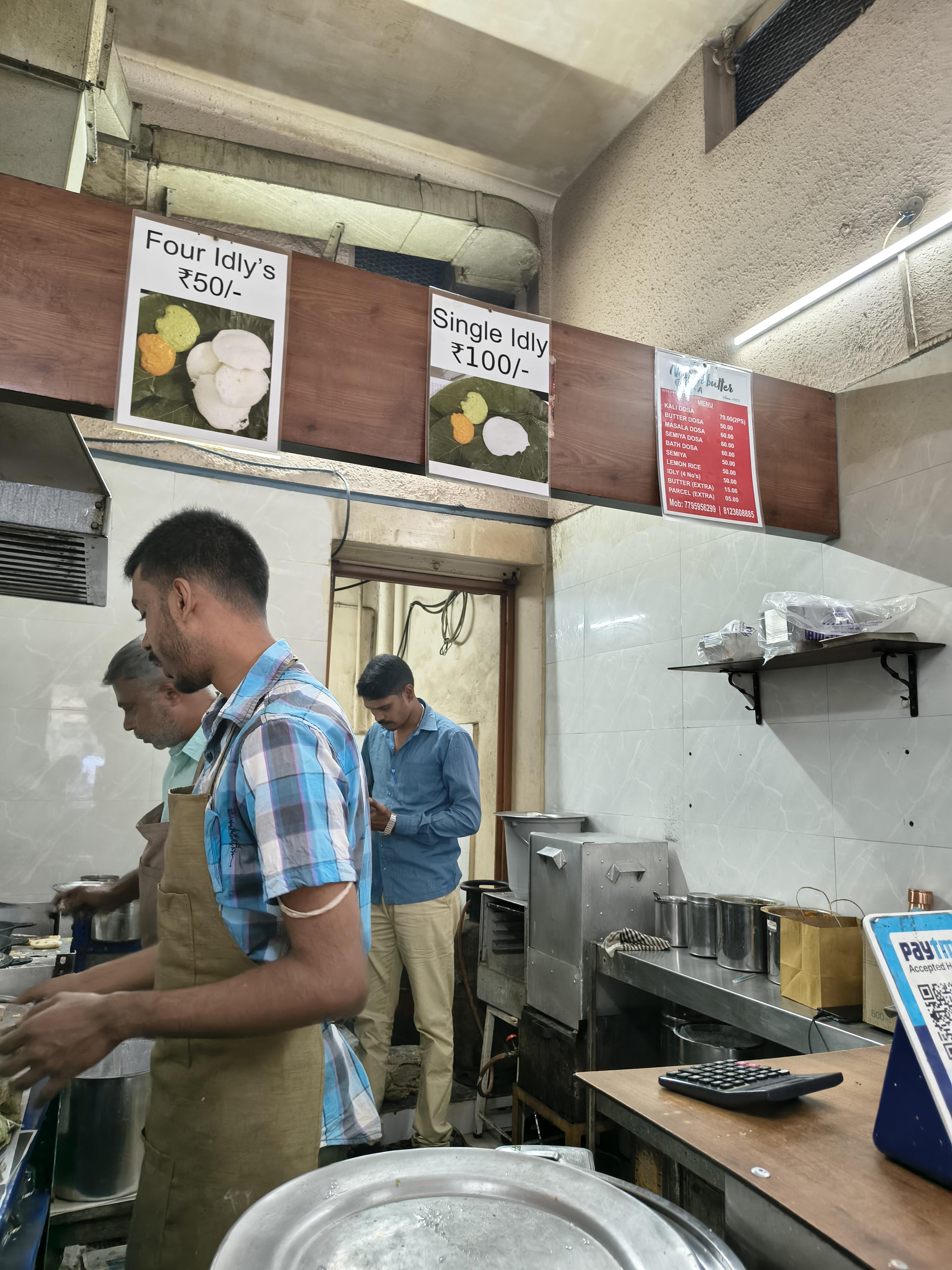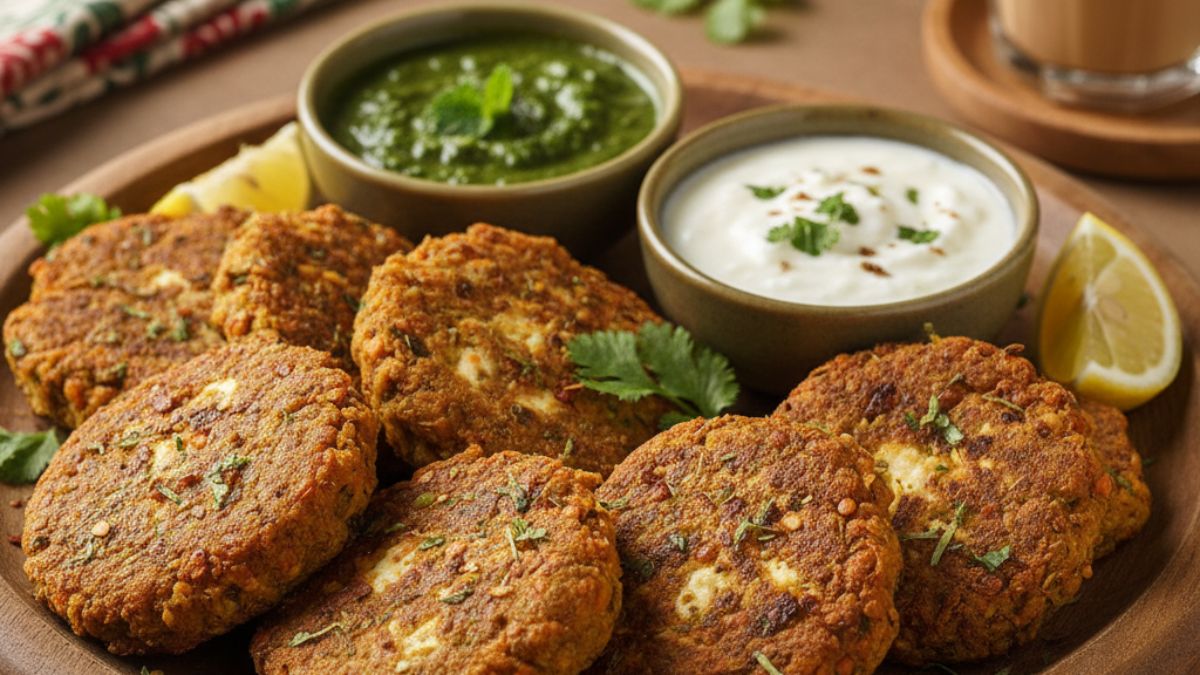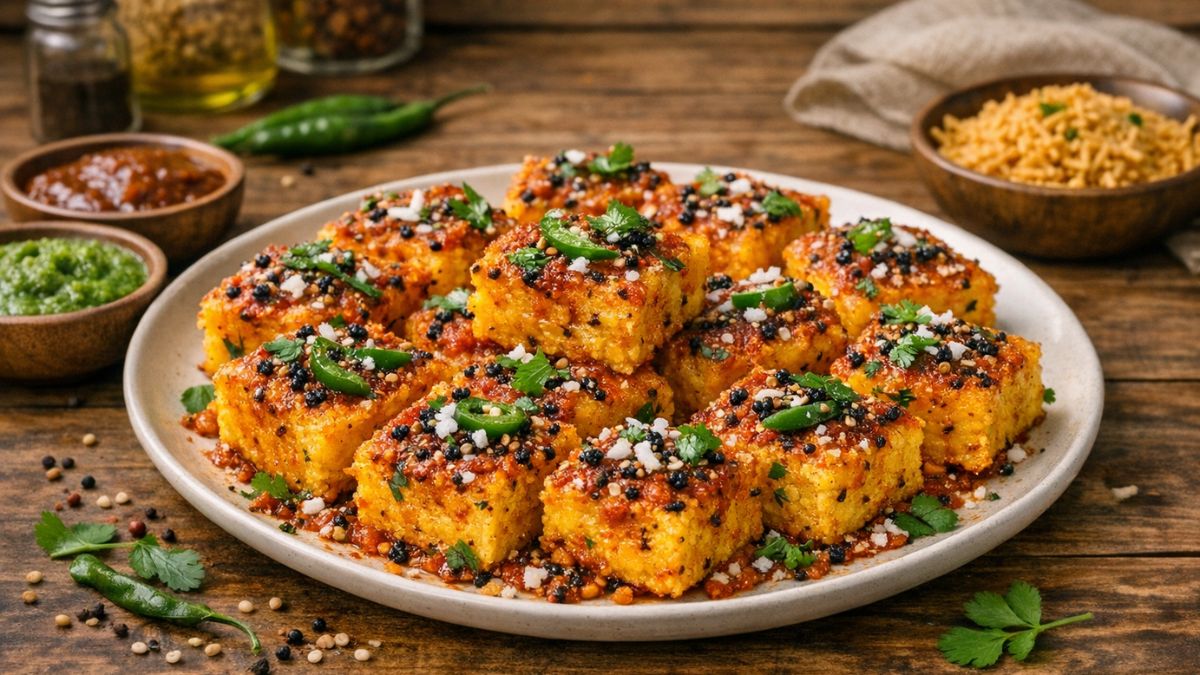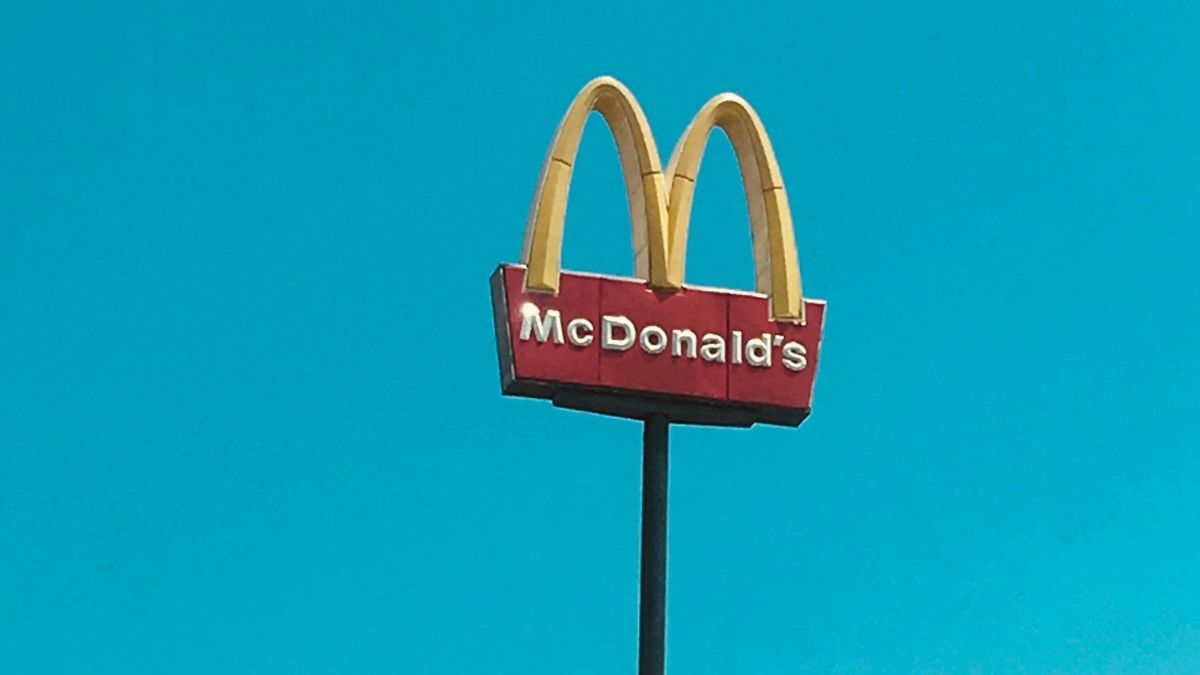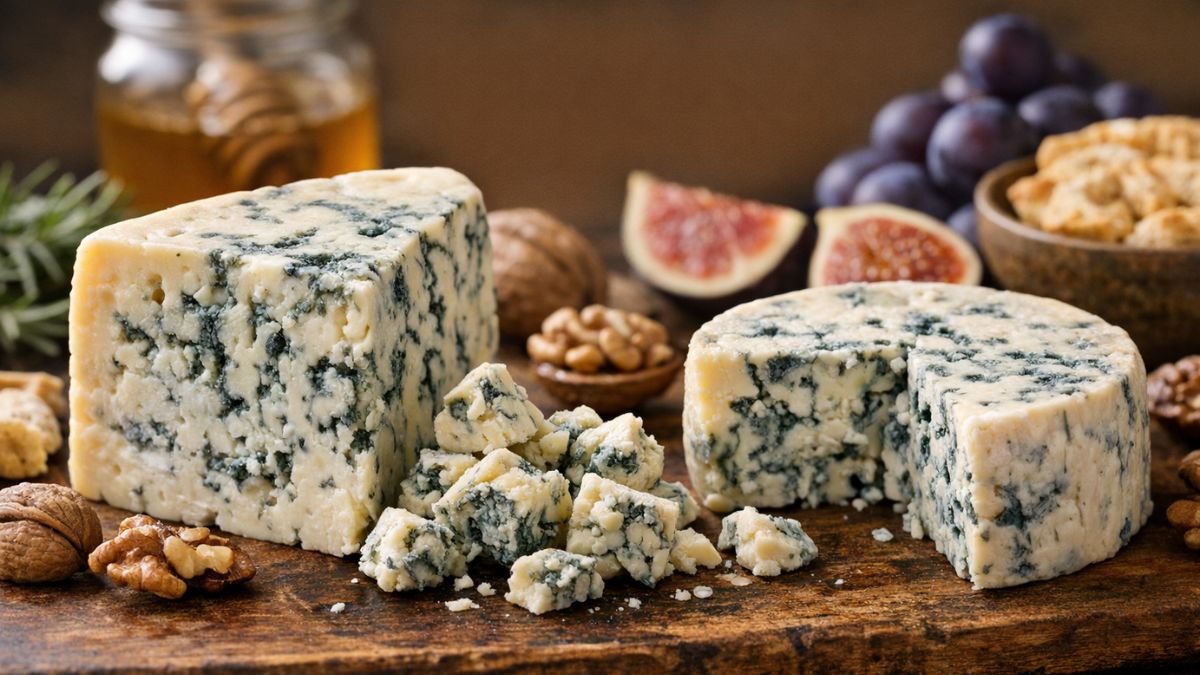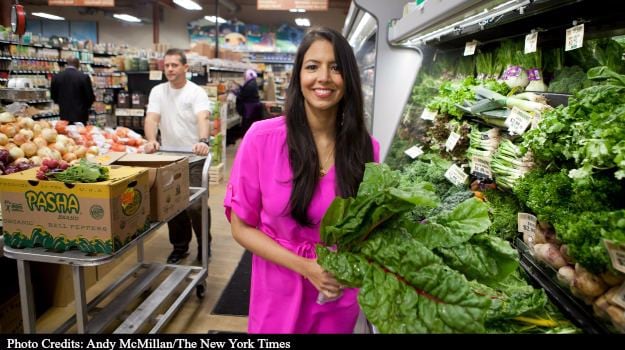On a recent Thursday, Vani Hari, perhaps Public Enemy No. 1 of big food companies, sat at ABC Kitchen in Manhattan's Flatiron district. Hari, 35, who is better known as Food Babe, the name of her blog, flipped through photographs of her that her mother had recently unearthed, pausing at one taken immediately after college at a Mexican restaurant.
"Look what I'm drinking," she said gleefully. "A Coke! I would never drink that now." In the past two years, first Hari, then her husband, who are based in Charlotte, North Carolina, quit lucrative jobs as consultants to make their living from Foodbabe.com, where Hari challenges companies like Coca-Cola for using ingredients she says are harmful. (Metrics can vary, but according to her figures, Food Babe has more than 3 million readers a month; comScore shows 1.1 unique visitors for January, roughly double the traffic of a year ago.)
Other Food Babe targets have included Starbucks (accusations of "hazardous chemicals" in pumpkin spice lattes), Chick-fil-A (which she called Chemical-Fil-A), Whole Foods (for genetically modified and hidden ingredients) and Subway. To protest the sandwich chain's use of azodicarbonamide in its bread, Hari posted a video of herself chewing another item in which the chemical is found: a yoga mat. In less than 24 hours, Hari's petition to the company to remove the dough conditioner had 50,000 signatures. The next day, Subway, which Hari said had not replied to any previous correspondence, emailed her to say it was already in the process of removing the chemical, which had been approved by the Food and Drug Administration.
It's tough to argue with a crusade to help Americans eat better and to win more transparency from both food companies and the federal agency, but Hari, a former computer science major with no training as a food scientist, nutritionist or chef, has managed to become a flash point. Her click-me headlines ("Do You Eat Beaver Butt?" for a post about what's in so-called natural flavorings) and camera-ready looks have won her a rabid #Foodbabearmy, billings as an expert on television shows, a book ("The Food Babe Way") that made its debut at No. 4 on The New York Times best-seller list last month, and a spot (along with Beyonce and Kim Kardashian) on Time Magazine's "30 Most Influential People on the Internet." But her statements - often incorrect - and faulty reasoning have produced numerous memes and parodies, not to mention aggressive reactions from doctors and scientists, who call her scientifically illiterate.
Asked Hari's biggest sin, Joseph A. Schwarcz, director of McGill University's Office of Science and Society exhaled loudly and said, "Where do I start?" Scientists splutter with frustration that to Hari, the word "chemical" is always a pejorative and that she yells fire about toxins but ignores that fruits and vegetables are full of naturally occurring toxins, and that the dose makes the poison.
"Peach pits, for example, are very natural, but they contain cyanide," said Fergus M. Clydesdale, a professor of food science at the University of Massachusetts. "Oranges have methanol, which is very toxic. And we've been eating those for thousands of years." Clydesdale also pointed out that the body is made of chemicals, and that we eat partly to replenish those chemicals with chemicals from food.
But mostly, the biggest objection to Hari is the paranoia and fear she whips up. The blog Science-Based Medicine calls her "the Jenny McCarthy of Food."
Hari, however, dismissed this criticism as manufactured by "the processed food lobby" and "industry-funded science." She sees herself as an activist and 21st-century Upton Sinclair (her reference) who provides information that "could be a lifesaver," which is what she wrote in a widely mocked post, now deleted, that demonized the microwave oven for destroying nutrients and causing cancer.
Hari, the daughter of Indian immigrants, grew up with a preference for Burger King and anything from the deep fryer over homemade Indian food. She had eczema, asthma, stomach problems and "severe" food allergies, the last of which critics (and at least one person who said she knew her growing up) dispute because Hari has advocated lying to servers about allergies to butter, dairy, corn and soy to avoid possible sources of genetically modified food.
At age 23, she had appendicitis, something she said was caused by her "lifestyle of poor nutrition," though most experts say it is a random occurrence. She read books like "Spiritual Nutrition" and "Conscious Eating" and applied the skills she learned as an award-winning debater in high school - "we learned how to research, like find obscure books and look at microfiche," she said - to food. She read labels, cleaned up her diet and saw results. Her eczema, asthma and allergies went away, and she said she was off all prescription drugs (up to eight or nine, depending on the season) within three to four years.
In 2011, friends encouraged her to share her experiences and lessons. She asked her husband to register the domain name eathealthyliveforever.com, but he suggested Food Babe instead. In a picture on her blog, Hari wears a yellow bikini and does a backbend known as yoga's wheel pose, "Food Babe" written in the beach sand in front of her.
Hari's posts follow one of a handful of simple but effective formulas. Sometimes she finds an ingredient, often an ugly-sounding chemical (propylene glycol, which she said was in beer), and finds a secondary industrial use (antifreeze) for it. (In this case, Hari actually confused her chemicals. Dr. David H. Gorski, a surgical oncologist who also has a degree in chemistry, wrote on Science-Based Medicine that the beer ingredient is propylene glycol alginate, which, despite its name, is not even close to propylene glycol, is not antifreeze and is derived from kelp.)
Another of her approaches is to find an unappetizing-sounding source of something (isinglass, for example, a colorless, tasteless collagen made from fish bladders that's been used for centuries to clarify beer without causing harm) and cry foul.
In both cases, Hari usually profits, promoting expensive alternatives for which she receives Amazon affiliate commissions. (Making a percentage off referrals is a common moneymaker for blogs.) Hari, who also sells eating guides ($17.99 a month) with "approved brands," said her methods were "bad business."
"I talk about a ton of products pro bono because it's just the right thing to do," she said. "I probably should reach out before I write about some of these products." Kevin M. Folta, chairman of the horticultural sciences department at the University of Florida, described Hari's lecture at the university in October as a "corrupt message of bogus science and abject food terrorism." (Her fee was $6,000.) Folta added, "She found that a popular social media site was more powerful than science itself, more powerful than reason, more powerful than actually knowing what you're talking about."
Even Hari's supporters concede that she is inflammatory. "Sometimes we may not share the same degree of concern about ingredients that she has or wouldn't express it the way she does," said Ken Cook, a founder of the Environmental Working Group, whom Hari calls a mentor. "But what we tend to have in common is this sense that there's been way too much leniency granted to the food industry when it comes to allowing ingredients into the marketplace."
Perhaps because Hari inspires a measure of fear in companies, she is often neither mentioned nor credited with a change in practices. Asked about her role in Subway's decision to remove azodicarbonamide from its bread, a company spokesman said in an email that the process began "before the ingredient began generating headlines." Asked specifically about Hari, he repeated the same phrase.
Like other outspoken women, Hari has her share of online attacks that are at times obscene, misogynistic and frightening. (Her brother requested anonymity to avoid these aggressive critics.) "My friends say, 'How are you going to get through it?'" she said. "And I just kind of laugh and say: 'I'll be like Taylor Swift. I'll just kind of shake it off.'"
She does not often engage directly even with those offering thoughtful criticism, instead blocking them from her Facebook page, which has more than 930,000 likes. One "Banned by Food Babe" Facebook group has nearly 6,000 members; another has nearly 700. Hari said people are only blocked for obscenities, but Schwarcz, who is among the banned (though not a Facebook group member), said he merely questioned her credentials.
As for those credentials, Hari said that chemistry shouldn't be necessary to decipher what to eat. She pointed out that her undergraduate major was actually in the College of Engineering at the University of North Carolina, Charlotte, so she took "hard science, oh my gosh, Physics 3, Calculus 3." Asked how she liked them, she said, "I mean, who likes those?"
In another much-mocked post, "Food Babe Travel Essentials - No Reason to Panic on the Plane!" Hari criticized the air on an airplane. Because of cost concerns, the air "pumped in isn't pure oxygen, either, it's mixed with nitrogen, sometimes at almost 50 percent," she wrote. Except ambient air isn't pure oxygen, either. It's roughly 78 percent nitrogen. The widely discredited post, where Hari also complained about the flight attendants' stinginess with water in first class, was removed swiftly.
In an interview, Hari said she didn't remember the post, which Cook brought up by name. She then said it would have disappeared from the blog because it was old. Weeks later, in an email, she admitted that it had been removed because of mistakes, and said that she planned to start noting when she clarified or corrected posts.
Hari said the these particular posts (which she wouldn't acknowledge as having been discredited) were a feeble exercise in nitpicking that detracted from her mission. "If you're going to pick apart every little sentence I've written ..." she said, her voice trailing off. She added of her critics, "They have to dig so far and deep to find something to make me look crazy because what I'm saying now is so sane and is so real."
© 2015 New York Times News Service

